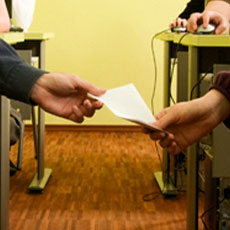Practical Tips for Minimizing Cheating During Exams
There is nothing more disheartening and stressful than having to formally accuse a student of cheating on an exam. Was the student looking at his neighbor’s exam or just glancing away from his test for a mental break? Did the student ask someone how to fill out the name portion of the instruction page, or did she obtain an answer to a test question? Did the two students with identical written answers prepare study notes together or cheat off one another while someone was asking the professor a question during the exam?





